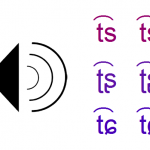Articles in the ‘Advanced’ category Page 9
-
Timeboxing Chinese: Get more done in less time
If you don’t invest the necessary time into learning Chinese, it doesn’t matter how good your method is. Timeboxing is a wonderful way to get more done in less time.
Read → -
Insights from the new HSK 7-9: Interview with Sara Jaaksola
Are you curious about the new HSK? Do you want to know what it’s really like to take and pass the advanced level? And how should you prepare to ace your own exams?
Read → -
How I learnt Chinese, part 7: Teaching, writing, learning
What’s it like to study Chinese when you’ve already reached the goals you had when you started out? How can you keep on learning when you’re no longer studying the language? And is there such a thing as being done with Chinese?
Read → -
How narrow reading and listening can help you bridge the gap to real Chinese
Varying your diet of Chinese reading and listening practice is often considered good, indeed necessary, for your learning, but this could be wrong. In some cases, variation makes things too difficult, and then narrow reading and listening is a better option!
Read → -
Seeing through the illusion of advanced Chinese learning
Courses and textbooks encourage narrow but advanced proficiency in Chinese, but if you want to be able to communicate well, you need to see through the illusion.
Read → -
Skritter review: Boosting your Chinese character learning
Skritter is a modern tool for learning ancient characters. It combines research-based methods such as active recall and spaced repetition with great Chinese-specific tools and content. While it’s not a free resource, it has enough edges over more generic, free services to be worth it in my opinion.
Read → -
Get to know your Chinese voice to level up your speaking ability
Have you listened to a recording of yourself speaking Chinese, only to find that your voice sounds unfamiliar and strange, like another person? Then you’re not alone!
Read → -
How learning some basic theory can improve your Mandarin pronunciation
Listening, mimicking and getting feedback is the best way to learn Chinese pronunciation, but unless you’re a small child or extremely talented, adding some theory to the mix can also be helpful.
Read → -
Learning Chinese is more like walking a thousand miles than running 100-metre dash
Learning Chinese is more like walking a thousand miles than running 100-metre dash. Make sure that your strategy works in the long term!
Read → -
Beyond tīng bu dǒng, part 5: Becoming a better listener as a student of Chinese
Many things influence listening comprehension in Chinese, some are related to the language, and some to the situation, but some are also related to you as a listener. How can you become a better listener in Mandarin?
Read →









